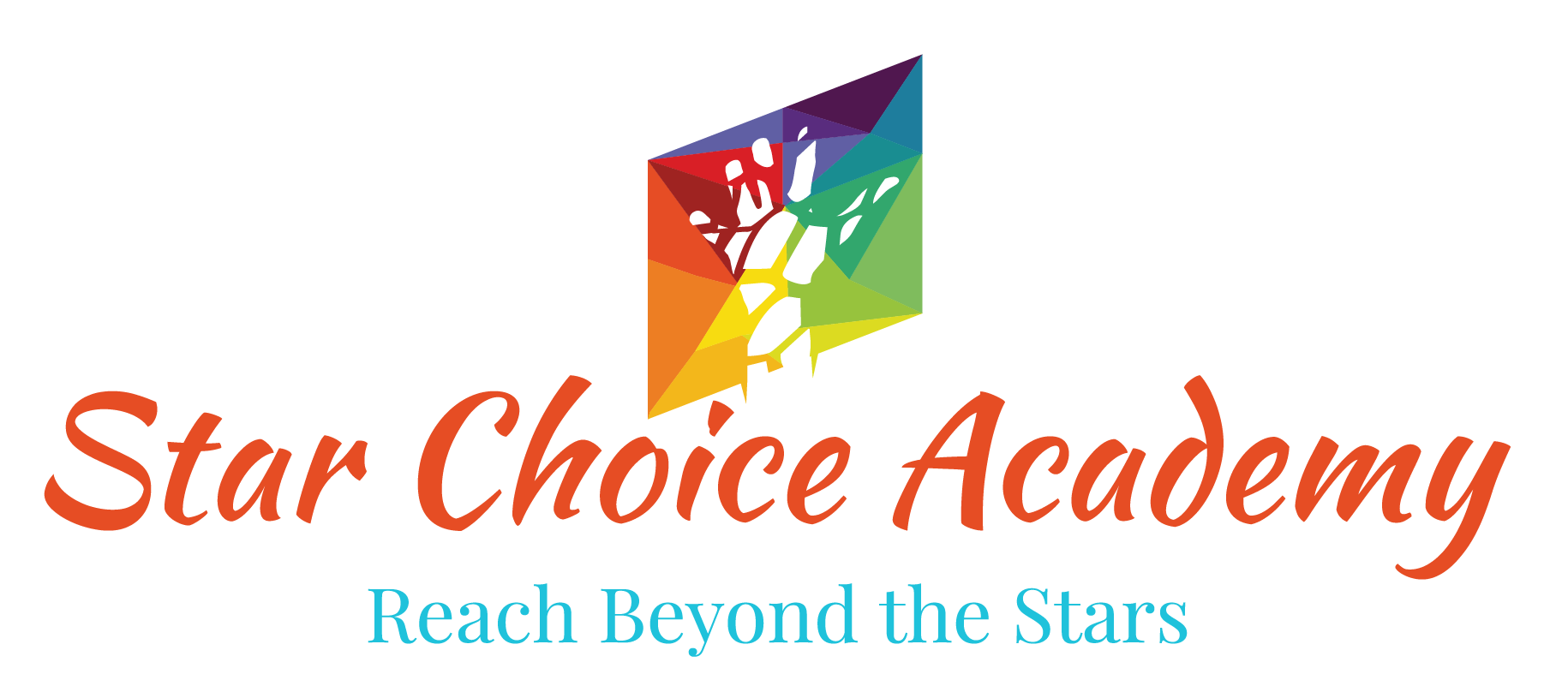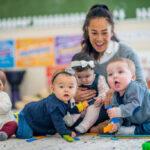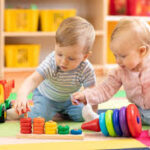

Infant Care
3 months to 12 months
About Our Infant Care
Education and development in the early years are crucial. Star Choice Academy differs from conventional childcare facilities because our qualified teachers and staff support this growth phase.
With the help of our New Beginnings program, your child will be matched with a principal teacher who will give them individualized care and support them as they grow and reach each milestone in a loving and supportive environment.
Strict health and safety regulations will be observed.
While your child is at our Academy, strict health and safety standards will be followed, ensuring they’re in a safe and secure setting.
Based on CDC recommendations, our improved health and hygiene program is intended to reduce coronavirus transmission.
Our curriculum, which gives your child a well-rounded education, served as the basis for developing our New Beginnings program.

We help Infants make sense of their environment.
- Our staff nurtures this critical stage in an infant’s development by allowing them to explore and learn about their surroundings using their senses. Infants are immersed in engaging activities designed to promote motor and sensory skills and develop an awareness of their environment.

Activities
- Engaging in sensory activities allows infants to enhance their auditory, visual, and tactile abilities as they interact with various toys and objects. Music and sounds support babies' language development and expand their vocabulary and speech skills. The concept of object permanence helps infants grasp that items continue to exist even when they are out of sight.

What Will My Child Be Doing?
- Your infant will be assigned a primary teacher to interact with, care for, play with, read with, and talk with your child. These babies nurture their development with social-emotional, communication, cognition, and fine and gross motor skills. Your infant will nap and have a feeding schedule consistent with the routines you’ve begun from home.
Developmental Milestones
Hover over each bubble to see what most newborns do at this age.
Fine & Gross Motor Skills
Infant Activities
• Developing leg muscles using objects that support walking.
• Learning to feed themselves by holding bottles on their own.
• Engaging in sensory play, including finger painting, play dough and blocks covered in different fabrics.
Social & Emotional Development
Infant Activities
• Enjoys playing with others and may cry when the playing stops.
• Become more communicative with face expression and body language.
• Mimics other’s movements and facial expressions
Language & Communication
Infant Activities
•Learning words in sign language.
•Responding to and imitating sounds and rhymes through songs.
•Identifying facial expressions and sounds.
Developmental Milestones
Infant Activities
• Follow object movement
• Smile at smiling faces and sound of familiar voices.
• Begin using hand and eyes coordination.
• They make sounds to express their emotions.
What will my child be doing?
Infant Activities
Developmental Milestones
Infant Activities
• Follow object movement
• Smile at smiling faces and sound of familiar voices.
• Begin using hand and eyes coordination.
• They make sounds to express their emotions.
We assist your child in developing strong cognitive skills.
Star Choice Academy helps your kids grow and learn during this crucial phase by letting them use their senses to learn about the world around them. Our teachers plan activities that help kids learn about their world by noticing how they respond to different sounds, textures, and sights that grab their curiosity.
Children will explore more and form connections between various sounds and sights. With regular exposure, they can easily adapt to their surroundings.
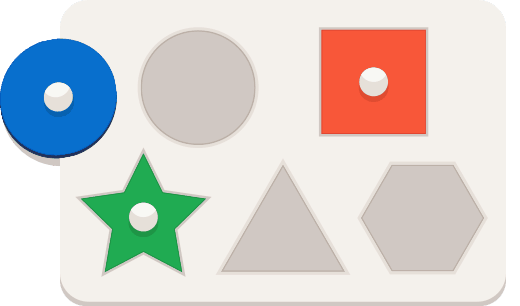
Infant Activities
- Play is crucial for your child’s cognitive development. It develops their reasoning, comprehension, communication, recalling skills, prediction, and imagination.
- Infants learn communication and worldview through back-and-forth play.
- Learning at the infant stage is continuous, whether in a classroom or at home. Engaging in simple activities at home can strengthen a child’s learning process.
Learn Through Play
- Play peekaboo to help your infant understand object permanence (that objects exist even when they can’t be sensed).
- Play with toys that make different sounds and have different textures to create sensory memories.
- Play with puzzles to develop an understanding of similarities and likenesses by sorting colored or shaped objects.

We nurture your children’s language skills.
Our teachers talk to your kids about topics to help them understand speech patterns and sounds. Supporting your child’s interest-led activities and interactions is essential to help them learn to communicate through gestures, babbling, or spoken language.
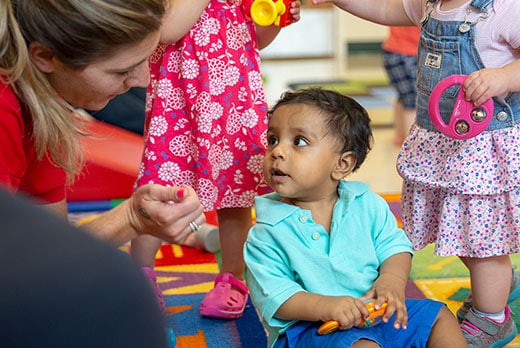
Infant Activities for Early Language Development
- Making associations between words and colors in books.
- Learning words in sign language.
- Responding to and imitating sounds and rhymes through songs.
- Identifying facial expressions and sounds.
Play Along
Learning continues beyond the classroom. Here are some activities you can do at home with your child:
- Read books that help relate words and word meanings.
- Sing nursery rhymes with facial expressions and signs to help with sound association.
- Use different words in simple sign language and identify facial expressions.
- Establish connections between colors and words in the book.
We support your children’s emotional and social development.
Your infant will establish a unique bond with loving adults. Star Choice Academy’s compassionate teachers will tailor their care to your child’s needs. Our caregivers help your child learn about the world through warmth, smiles, and expert care in a safe and secure environment.
Your child will also develop a deep understanding of emotions through our friendly teachers who share loving grins, and caring interactions to build trust and strengthen emotional development.
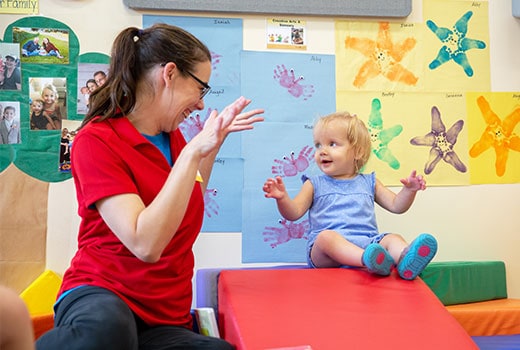
Infant Activities for Social and Emotional Growth
- Nurturing attachments with familiar adults.
- Playing near and developing familiarity with other infants and teachers.
- Learning self-awareness through songs.
- Displaying social gestures through interactive materials.
Play On
Learning continues outside the classroom. Use your spare time at home by engaging in these activities with your little one:
- Rock and cuddle your youngster. They develop a tight physical bond as a result, which fosters trust.
- When upset, reassure them. Give them a hug or a relaxing item, like a favorite blanket,. These assist them in learning relaxation techniques.
- Wave to them or give happy cues and sing rhymes, “Peek-a-boo, I see you.” It creates self-awareness and helps them learn social gestures.
We aid children’s development of motor skills.
As educators and caregivers, we help your child develop motor skills to reach physical milestones. We encourage every effort your kid makes to improve hand, arm, and leg muscles for fine and gross motor abilities.
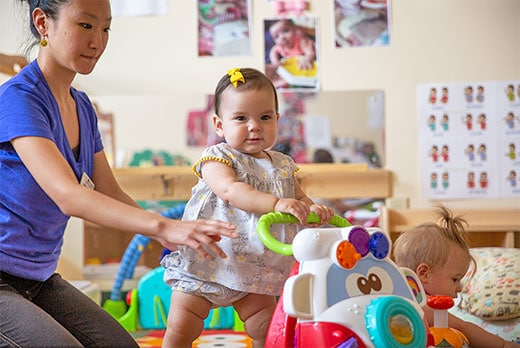
Infant Activities for Motor Skills Development
- Learning to lift, hold and turn their head, roll over, sit up and crawl.
- Developing leg muscles using objects that support walking.
- Learning to feed themselves by holding bottles on their own.
- Engaging in sensory play, including finger painting, play dough and blocks covered in different fabrics.
- Exploring the outdoors through daily walks in strollers and playing outside in the playground.
Play Along
- Give your baby “tummy time” so they can practice lifting, turning and holding their head; rolling over; sitting up; and crawling.
- Use toy strollers, grocery carts or other objects that support walking to help your infant develop strong leg muscles.
- Use finger painting, play dough, bags and blocks covered in different fabrics to have sensory play time with your child.
- Explore the outdoors through daily walks in strollers and playing outside.

